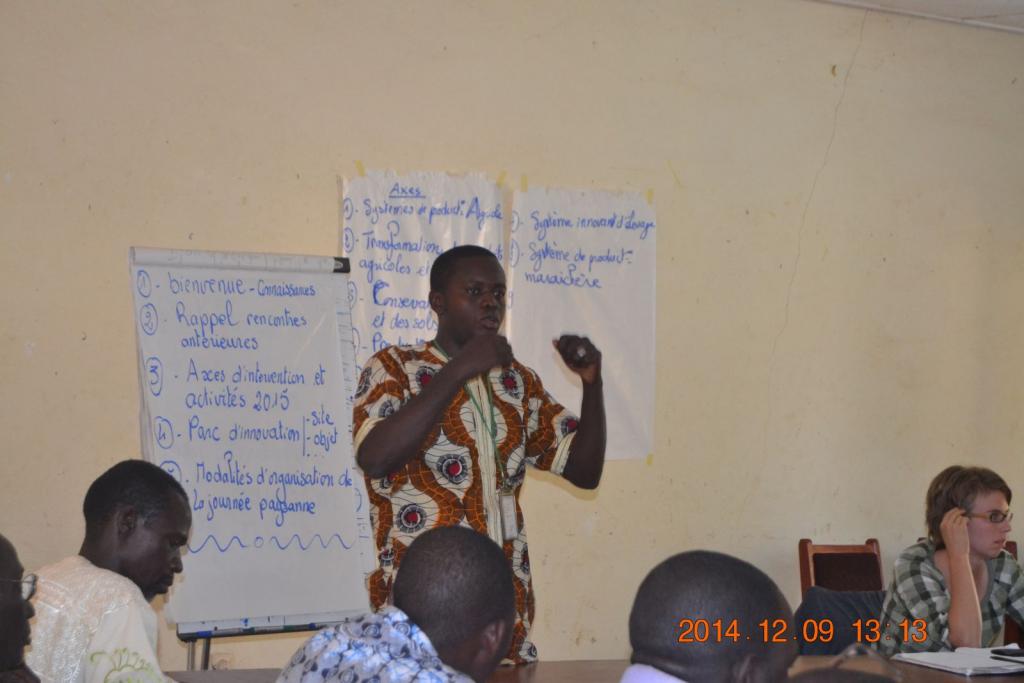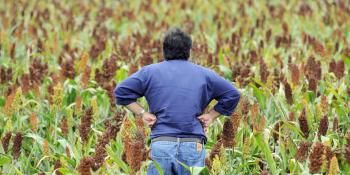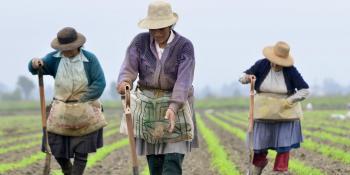New knowledge sharing platform helps Mali rig better defense against climate change
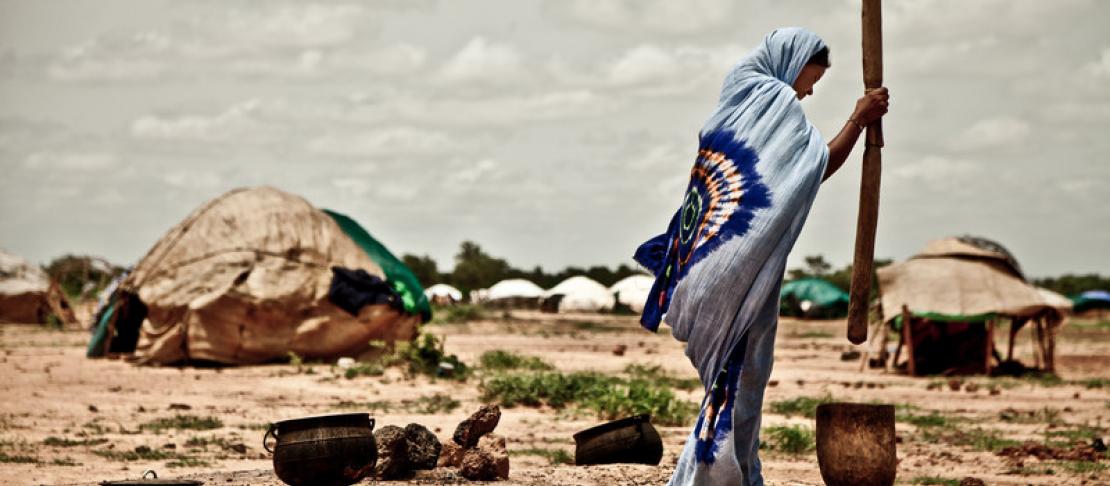
New district-level meeting platform will help scientists, traditional authorities and organisations share climate knowledge, tools and lessons learned for a more food secure and resilient region.
An immense science-policy exchange project is now in full speed as it recently launched its first out of three district-level platforms for scientists, service providers and traditional village authorities for the Bougouni region, 170 km southeast of Mali's capital Bamako.
The platform, officially called “Jèkafo Blomba” meaning “dialogue platform” in the regional dialect Bambara, is envisioned to become a vibrant knowledge-sharing hub, where key regional stakeholders will get together every three months to share news and concerns related to climate change and agriculture in the region.
The project is led by the International Crops Research Institute for the Semi-arid Tropics (ICRISAT) project as part of CCAFS new flagship on Institutions and Policies for Climate-Resilient Food-Systems, and its West Africa program.
A knowledge platform for policy change
Participants will be able to discuss food-related matters such as food-value chain and processing issues, how to expand and improve markets in the region, and find ways to successfully create climate-resilient food systems.
The overall goal is to make climate change a key issue in district-level food security policies, and present possible solutions and ways forward for the country, for example through the use of climate-smart agriculture practices and technologies.
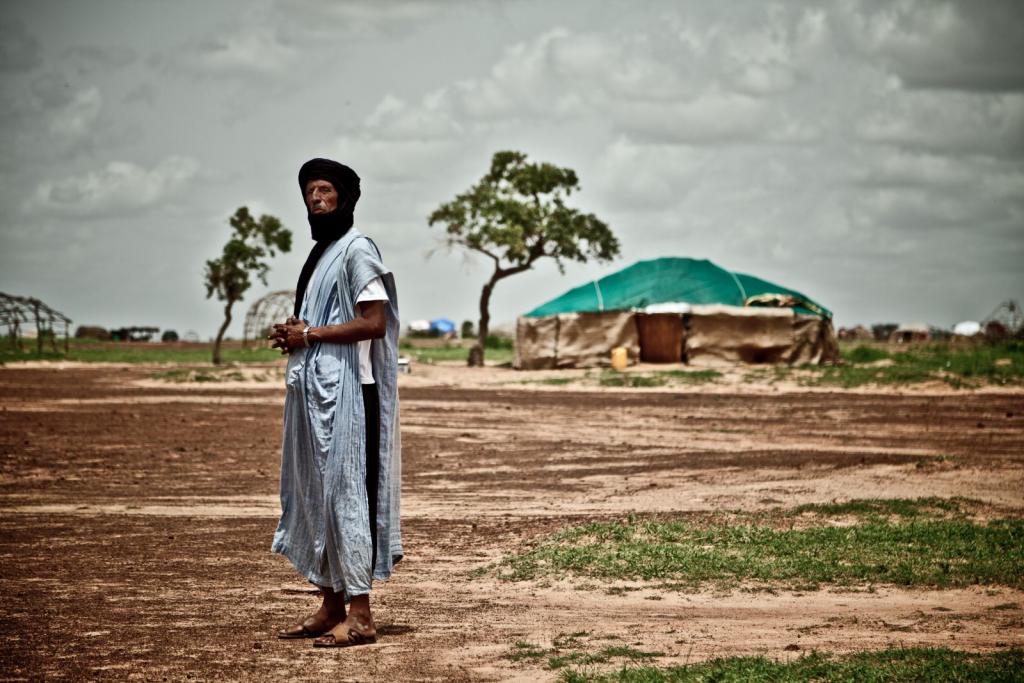
Photo: West Africa is suffering from an increasingly variable climate, failed rains and heating temperatures. Project seeks to make climate and food security issues top policy priorities in the various regions in Mali. Photo: Oxfam
Through sharing climate and agriculture data and knowledge, the project also aims to build the capacity of participants to better tackle climate change at the community level.
District-level platforms have also been set-up on Ghana and Senegal, which together with Mali form the primary focus areas for the ICRISAT-led project Capacitating science-policy exchange platforms to mainstream climate change into national agricultural and food security policy plans.
The Mali district-level platform was established by the members of the national science-policy platforms, already set up through the work of CCAFS West Africa program in 2012, in the three project countries, but will be managed and coordinated by Mobion, a farmer association also known as the Malian Organic Movement.
Learn more about the national-level platforms: Laying the foundation for information and knowledge sharing on climate change adaptation
Hot topics on the table - gender, markets and conflict management
The policy-research exchange project has been ongoing for almost a year now, and with the recent launch in Mali, all project countries have now a place for key stakeholders to meet.
In Mali a wide range of partners have joined the activities, including traditional authorities, scientists and lecturer from national universities, technical service providers such as the Regional Union of Milk Producers Cooperative Societies, an agro-processing and marketing cooperative, farmer-based organisations and grassroot organisations. The platform has already attracted 30 members and representatives, all eager to meet and talk climate change and food security.
Edmond Totin, scientist with ICRISAT and project manager, says:
We have specifically targeted traditional authorities as they many times have strong informal power to make things happened, sometimes much easier than formal leaders for example regional officials. This makes it highly relevant to engage with them through these district-level platforms."
Mamadou Cissé, President of the Regional Union of Milk Producers’ Cooperative Societies, was attracted to the platform’s potential very early on in the project, and said during the launch that:
Jèkafo Blomba will give us the opportunity to interact with different people involved in other sectors, and this will certainly help us reduce conflicts between for example farmers-cattle rearers.
Through the platform I will be able to meet technicians and researchers, and discuss very directly what concerns we have and how we can work together to find solutions to our many climate change-related problems. I hope you see why I think that with this platform, things will never be the same again!"
Fatoumata Dounbia, representing the CoFProSo-Trans Association of Bougouni, is engaged in agri-food processing in the region and is dedicated to making sure gender-issues are made a key concern for the platform.
For me, climate change and food production is not a problem for men alone; women are also concerned and this platform will give us the opportunity to tell others how women across the region are suffering. Certainly other women will join this movement to bring attention to their problems so that together we can look for more gender-appropriate solutions," she said during the platform launch.
"The platform also offers opportunities to meet other people who are interested in the Cooperative’s products and engage with suppliers, which is really important as well."
Photo from the launch-meeting in Mali.
In the near future, the project will focus attention towards identifying more stakeholders from the district, and together with group members look at knowledge gaps and identify priorities for additional climate research.
The project will aim for the platforms to become the number one district-level science‐policy exchange platforms in the respective countries, forming the backbone for a top‐down and bottom‐up approach to better rig the nations against climate change and create better and more resilient food systems.
How do innovation platforms change how things are done? Image from presentation by Peter Ballantyne.
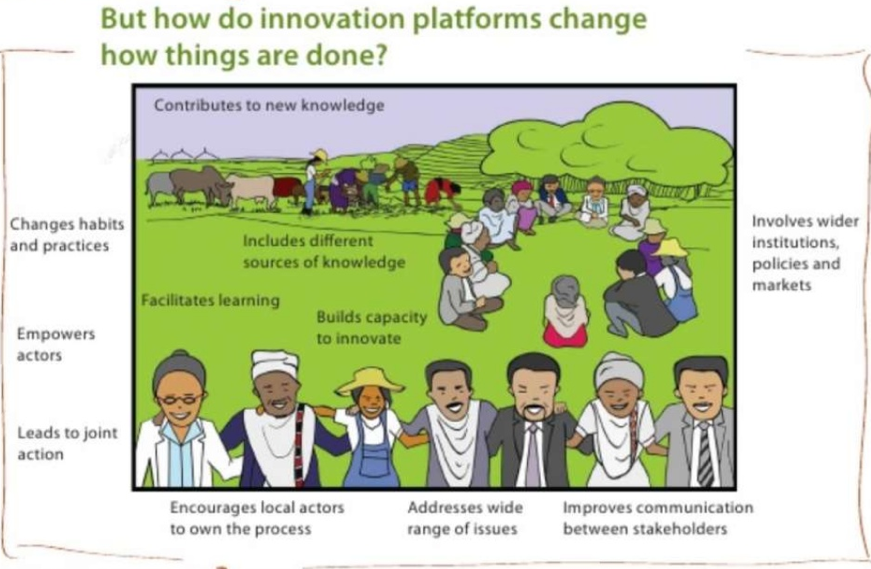
Watch video from climate-smart agriculture workshop in Ghana
Story by Edmond Totin, project manager for "Capacitating science-policy exchange platforms to mainstream climate change into national agricultural and food security policy plans". If you have questions related to the project, get in touch with Totin: e.totin[at]cgiar.org
Cecilia Schubert works as a Communications Officer for CCAFS Flagship 4 on Institutions and Policies for Climate-Resilient Food-Systems

